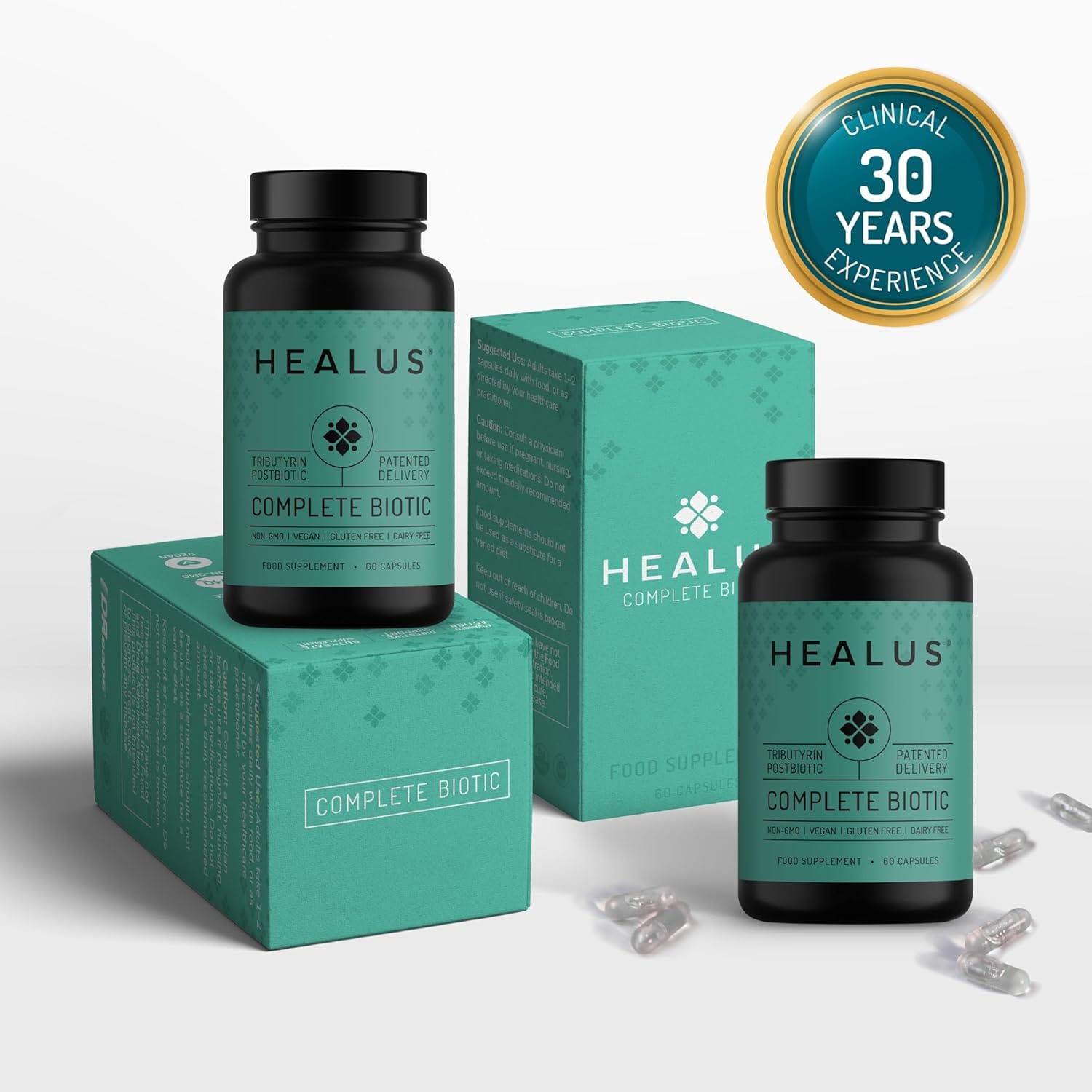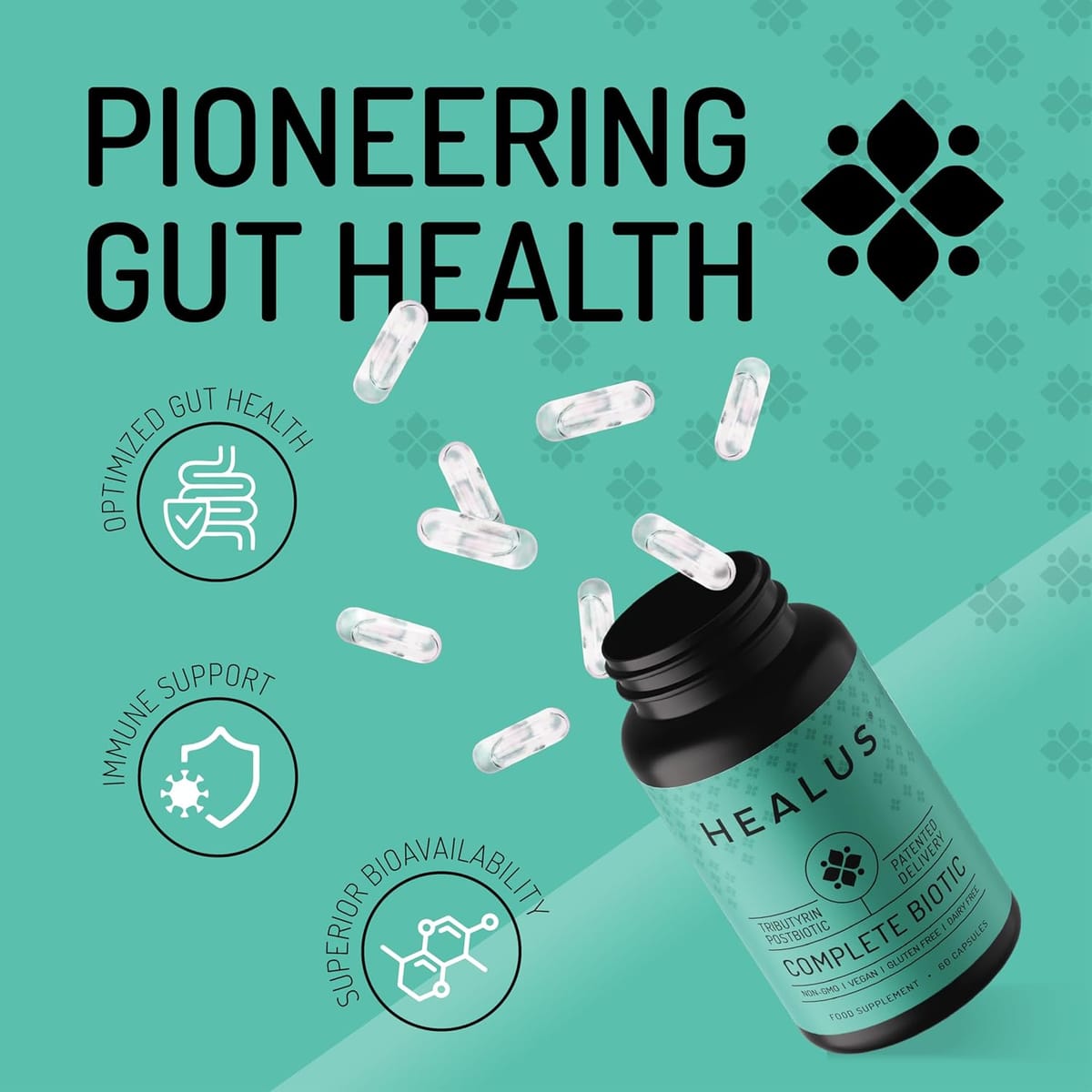Key Takeaways:
- Postbiotics are beneficial compounds produced by probiotics during fermentation.
- They offer various health benefits, including immune support and anti-inflammatory effects.
- Understanding different types of postbiotics can help in choosing the right supplements for your health needs.
Introduction to Postbiotics
Postbiotics might sound like the new kid on the block, but they’re actually the unsung heroes in the gut health narrative. These compounds are the byproducts of probiotic bacteria, and they pack a punch when it comes to health benefits. Imagine them as the secret sauce that adds flavor to your health regimen.
In the bustling world of gut health, postbiotics are gaining traction for their potential to enhance well-being. They’re like the cherry on top of your probiotic sundae, offering benefits that go beyond what probiotics alone can provide. Let’s dive into the fascinating world of postbiotics and explore some examples you should know about.
What Exactly Are Postbiotics?

Postbiotics are the metabolites or byproducts produced by probiotic bacteria during fermentation. Think of them as the final product of a complex process that starts with probiotics. They include a variety of substances such as short-chain fatty acids, enzymes, peptides, and polysaccharides.
These compounds are not just leftovers; they are active agents that can influence your health in numerous ways. From boosting your immune system to reducing inflammation, postbiotics are like the backstage crew that ensures everything runs smoothly.
The Science Behind Postbiotics
The science of postbiotics is as intriguing as a mystery novel. Researchers have been delving into how these compounds work and their potential health benefits. It turns out that postbiotics can interact with the gut microbiota, influencing its composition and activity.
This interaction can lead to improved gut health, better digestion, and even enhanced mood. It’s like having a personal trainer for your gut, ensuring everything is in tip-top shape. The more we learn about postbiotics, the more we realize their potential in promoting overall health.
Short-Chain Fatty Acids (SCFAs)

Short-chain fatty acids are one of the most well-known types of postbiotics. They are produced when probiotics ferment dietary fibers in the gut. SCFAs, such as acetate, propionate, and butyrate, play a crucial role in maintaining gut health.
These compounds are like the fuel that powers your gut cells, providing energy and supporting the integrity of the gut lining. They also have anti-inflammatory properties, making them valuable allies in managing conditions like irritable bowel syndrome (IBS).
Enzymes as Postbiotics
Enzymes produced by probiotics during fermentation are another important category of postbiotics. These enzymes can aid in digestion by breaking down complex molecules into simpler forms that the body can easily absorb.
For instance, lactase is an enzyme that helps digest lactose, the sugar found in milk. For those who are lactose intolerant, postbiotic enzymes can be a game-changer, allowing them to enjoy dairy products without discomfort.
Peptides and Their Benefits

Peptides are small chains of amino acids that can have significant health benefits. As postbiotics, they can act as antioxidants, protecting cells from damage caused by free radicals. They also have antimicrobial properties, helping to keep harmful bacteria at bay.
In the grand scheme of gut health, peptides are like the knights in shining armor, defending your body against potential threats. Their role in maintaining a balanced gut environment is crucial for overall well-being.
Polysaccharides: The Unsung Heroes
Polysaccharides are complex carbohydrates that serve as another type of postbiotic. They can modulate the immune system, enhancing its ability to fight off infections. These compounds are like the body’s natural defense system, ready to spring into action when needed.
In addition to their immune-boosting properties, polysaccharides can also support gut health by promoting the growth of beneficial bacteria. They’re like the fertilizer that helps your gut garden flourish.
Lipopolysaccharides and Immune Support

Lipopolysaccharides (LPS) are molecules found in the outer membrane of certain bacteria. As postbiotics, they can stimulate the immune system, enhancing its ability to respond to pathogens. It’s like having a security system that alerts you to potential intruders.
However, it’s important to note that not all LPS are beneficial. Some can trigger inflammation, so it’s crucial to strike a balance. Understanding the role of LPS in postbiotics can help you make informed choices about your health.
Vitamins and Minerals from Postbiotics
Certain postbiotics can also contribute to the production of vitamins and minerals. For example, some probiotics can synthesize B vitamins during fermentation, which are essential for energy production and brain health.
These nutrients are like the building blocks of your body, supporting various functions and keeping you in peak condition. Incorporating postbiotics into your diet can help ensure you’re getting the nutrients you need.
Postbiotics and Skin Health

The benefits of postbiotics extend beyond the gut, reaching as far as your skin. Some postbiotics have been shown to improve skin health by reducing inflammation and promoting hydration. It’s like having a spa day for your skin, leaving it refreshed and rejuvenated.
Incorporating postbiotics into your skincare routine can help address issues like acne and eczema, providing a natural solution to common skin concerns.
Postbiotics in Fermented Foods
Fermented foods are a rich source of postbiotics. Foods like yogurt, kefir, sauerkraut, and kimchi are teeming with these beneficial compounds. They’re like a treasure trove of health benefits, waiting to be unlocked with each bite.
Including fermented foods in your diet is an easy way to boost your intake of postbiotics. They not only enhance gut health but also add a burst of flavor to your meals.
Postbiotic Supplements: What to Look For

If fermented foods aren’t your cup of tea, postbiotic supplements are a convenient alternative. When choosing a supplement, look for products that specify the types of postbiotics they contain and their potential benefits.
It’s like shopping for a new gadget; you want to make sure you’re getting the best features for your needs. Reading labels and doing a bit of research can help you find a supplement that aligns with your health goals.
The Role of Postbiotics in Mental Health
Emerging research suggests that postbiotics may also play a role in mental health. By influencing the gut-brain axis, these compounds can impact mood and cognitive function. It’s like having a direct line of communication between your gut and brain, ensuring both are in harmony.
Incorporating postbiotics into your routine may help alleviate symptoms of anxiety and depression, offering a natural approach to mental well-being.
Postbiotics and Weight Management

Postbiotics may also aid in weight management by influencing metabolism and appetite regulation. They’re like the personal trainer that helps you stay on track with your fitness goals.
By promoting a healthy gut environment, postbiotics can support weight loss efforts and help maintain a healthy weight. Including them in your diet can be a valuable tool in your weight management arsenal.
Potential Side Effects of Postbiotics
While postbiotics offer numerous benefits, it’s important to be aware of potential side effects. Some individuals may experience digestive discomfort or allergic reactions. It’s like trying a new dish; sometimes, it takes a bit of adjustment.
If you experience any adverse effects, it’s best to consult with a healthcare professional. They can help determine if postbiotics are right for you and guide you in finding the best approach for your health.


What are postbiotics?
Postbiotics are the byproducts of probiotic bacteria, produced during fermentation. They include compounds like short-chain fatty acids, enzymes, peptides, and polysaccharides, which offer various health benefits.
How do postbiotics differ from probiotics?
While probiotics are live bacteria that confer health benefits, postbiotics are the metabolites produced by these bacteria. Postbiotics do not contain live organisms but still offer health benefits through their bioactive compounds.
Can postbiotics help with digestive issues?
Yes, postbiotics can aid in digestion by supporting gut health and reducing inflammation. They can be particularly beneficial for individuals with conditions like irritable bowel syndrome (IBS) or lactose intolerance.

Postbiotics are a fascinating and beneficial component of gut health. From short-chain fatty acids to peptides, these compounds offer a wide range of health benefits. Whether you’re looking to boost your immune system, improve digestion, or enhance skin health, postbiotics can be a valuable addition to your wellness routine. By understanding the different types of postbiotics and their benefits, you can make informed choices that support your overall health.











